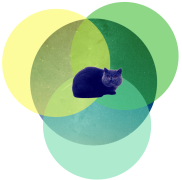The ancient word of the day is Dægeseage. This is an old English word for daisy. The origin of Dægeseage is literally daisy or day’s eye. Which makes sense when you think about the quaint little flower and its tendency to follow the arc of the sun through the sky from dawn to dusk, soaking in as much light and goodness as possible.
The idea is that the daisy or day’s eye works hard all day and then closes and rests overnight, echoing the work of agrarian folk of yesteryear.

The Legend of Good Women, Chaucer (1380)
Down full softly I began to sink;
And leaning on my elbow and my side,
There the long day planned I to abide,
For no reason else, no lie you see,
Than there to look upon the daisy,
That for good reason men do name
The ‘day’s-eye’ or else the ‘eye of day,’
The Empress, and flower of flowers all.

Norse
The Old English word has its roots in Norwegian.
“Dagens øye” and “Dagens auge” means “The Days eye” in Norwegian.

Welsh
Llygad y dydd: Day’s eye
Dutch
Madeliefje: sweet virgin.
German
Gänseblümchen: Little goose flower

